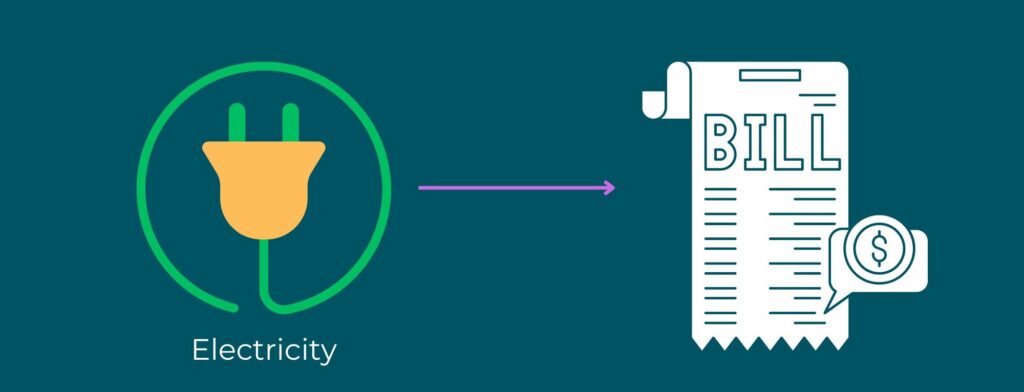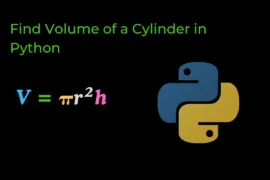In this post, we will write a Python program to calculate electricity bill by taking input from the user and also we will write this program by using a user-defined function. But Before we begin, we should know about electric charges and their rates.
Electricity Charges and their rates:
- 1 to 100 units – 1.5Rs
- 101 to 200 units – 2.5Rs
- 201 to 300 units – 4Rs
- 300 to 350 units – 5Rs
- Above 350 – Fixed charge 1500Rs
Now we know electricity charges and their rates, So now let’s start writing our program.

Calculate Electricity Bill in Python by Taking Input from the User
Few programming concepts you have to know before writing this program:
Source Code
# 1 to 100 units - 1.5Rs
# 101 to 200 units - 2.5Rs
# 201 to 300 units - 4Rs
# 300 to 350 units - 5Rs
# Above 350 - Fixed charge 1500Rs
units = float(input("Enter the Unit Consumed: "))
if units > 0 and units <= 100:
payment = units * 1.5
fixedCharge = 25 # Extra charge
elif units > 100 and units <= 200:
payment = (100 * 1.5) + (units - 100) * 2.5
fixedCharge = 50 # Extra charge
elif units > 200 and units <= 300:
payment = (100 * 1.5) + (200 - 100) * 2.5 + (units - 200) * 4
fixedCharge = 75 # Extra charge
elif units > 300 and units <= 350:
payment = (100 * 1.5) + (200 - 100) * 2.5 + (300 - 200) * 4 + (units - 300) * 5
fixedCharge = 100 # Extra charge
else:
payment = 0
fixedCharge = 1500
total = payment + fixedCharge
print(f"Your Electricity Bill amount is {total:.2f}")Output-1
Enter the Unit Consumed: 275
Your Electricity Bill amount is 775.00Output-2
Enter the Unit Consumed: 100
Your Electricity Bill amount is 175.00Calculate Electricity Bill in Python Using Function
Few programming concepts you have to know before writing this program
- How to take input from the user
- Arithmetic Operator
- if-else &
- if-elif-else in python
- Python functions
Source Code
#function defination
def ElectricBillCal(units):
if units > 0 and units <= 100:
payment = units * 1.5
fixedCharge = 25 # Extra charge
elif units > 100 and units <= 200:
payment = (100 * 1.5) + (units - 100) * 2.5
fixedCharge = 50 # Extra charge
elif units > 200 and units <= 300:
payment = (100 * 1.5) + (200 - 100) * 2.5 + (units - 200) * 4
fixedCharge = 75 # Extra charge
elif units > 300 and units <= 350:
payment = (100 * 1.5) + (200 - 100) * 2.5 + (300 - 200) * 4 + (units - 300) * 5
fixedCharge = 100 # Extra charge
else:
payment = 0
fixedCharge = 1500
return payment + fixedCharge
u = float(input("Enter the Unit that you will Consumed: "))
totalBill = ElectricBillCal(u) # call a function
print(f"Your electricity bill: {totalBill:.2f}")
Output-1
Enter the Unit that you will Consumed: 201
Your electricity bill: 479.00Output-2
Enter the Unit that you will Consumed: 400
Your electricity bill: 1500.00





